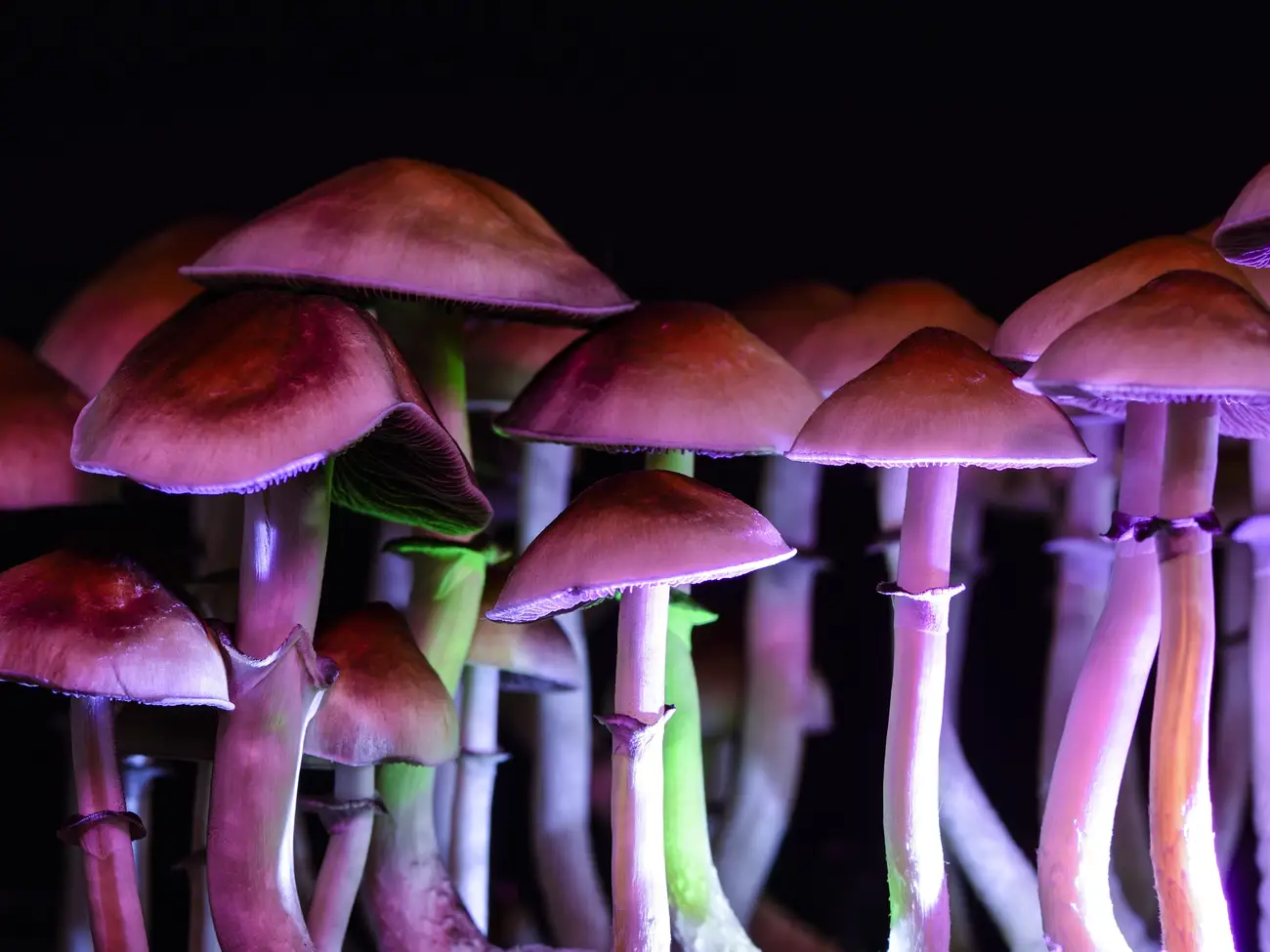
Psychedelic Clinics vs. Psychedelic Retreats
As psychedelics become increasingly mainstream, there are more opportunities than ever to access these experiences. Psychedelic clinics and retreats represent two of the most widespread and widely used avenues to experiencing psychedelics in a legal and supportive setting. What are the differences between psychedelic clinics and psychedelic retreats, and which is right for you? Read on to find out.
Psychedelic Clinics
Psychedelic retreats are typically run by private organizations or individuals, often in countries where psychedelic substances are legal or are decriminalized. The substances used in these retreats can include psilocybin, ayahuasca, peyote, and iboga, among others. There are many specific retreat benefits that you cannot get at a clinic. These retreats offer a more immersive experience, as individuals spend several days or even weeks in a remote location, usually in nature. This creates the opportunity to explore psychedelic work more deeply, compared with a session on a single day in a clinic. What’s more, retreats usually involve more than one session or ceremony with the substance, creating the opportunity for more profound transformation.
The level of psychological support provided varies between clinics. Some combine sessions with psychotherapy, while others just provide a session with the substance alone. The treatment is usually conducted under the guidance of a trained medical professional, however, such as a doctor or nurse.
The main goal of psychedelic clinics is to provide a safe and controlled environment for individuals to receive treatment for various mental health issues, from major depression to PTSD. Clinics operate within the legal framework of their respective countries and adhere to strict regulations to ensure the safety of the patients. The therapy provided is usually personalized to meet the unique needs of each individual, and the sessions are often conducted in a one-on-one setting.
Psychedelic Retreats
Psychedelic retreats are typically run by private organizations or individuals, often in countries where psychedelic substances are legal or are decriminalized. The substances used in these retreats can include psilocybin, ayahuasca, peyote, and iboga, among others. These retreats offer a more immersive experience, as individuals spend several days or even weeks in a remote location, usually in nature. This creates the opportunity to explore psychedelic work more deeply, compared with a session on a single day in a clinic. What’s more, retreats usually involve more than one session or ceremony with the substance, creating the opportunity for more profound transformation.
Going on retreat removes one from the stresses and demands of daily life. When not on retreat, these pressures are still active and we remain aware on some level that it isn’t safe for us to explore too deeply, as we have to return to our responsibilities soon after the session. Being on retreat creates a space where one can open more fully to oneself. The primary goal of psychedelic retreats is to provide a transformative experience for individuals seeking personal development.
Retreats can be run by just one person, such as a medicine person or shaman, or by whole teams of shamanic practitioners, musicians, space holders, and even off-duty psychotherapists or clinicians trained in ceremonial contexts. Retreats often incorporate various complementary practices, such as yoga, meditation, and breathwork.
Differences between Psychedelic Clinics and Psychedelic Retreats
Goals
Psychedelic clinics aim to provide treatment for mental health disorders, while psychedelic retreats typically focus on personal growth and transformation. If one is in need of urgent symptom relief for a mental health condition, a clinic will likely be the more appropriate choice. Ketamine has been found to be highly effective at rapidly reducing suicidal ideation in individuals with Major Depressive Disorder [1]. For someone who is looking to address symptoms of clinical depression, a clinic will likely be the more appropriate option.
More broadly, those looking to address mental health conditions such as PTSD may want to consider clinics that are designed to provide clinical support for those suffering with such conditions. An exception to this rule is Iboga retreats which are often intended to help people struggling with addiction, although the clinical support and suitability will vary between different retreats.
People struggling with mental health issues are in no way excluded from retreats and can still attend. It is important however that they are aware that the purpose of the retreat isn’t to address clinical mental health issues. Instead, retreats can help with inner exploration to resolve challenges one might be facing in life, to gain insight into how to bring one’s life into more alignment with one’s values and goals, or for spiritual and psychological insight for greater wellbeing. This list is not exhaustive however, with the goals and reasons for attending a retreat being specific to each individual.
Substances Used
Psychedelic clinics often use synthetic substances produced in a lab, such as ketamine and MDMA, while retreats typically use psychedelics from natural sources, such as fungi, cacti, the root of the iboga shrub, toad secretions, or the leaves of the chacruna plant in combination with the bark of the ayahuasca vine.
Different substances lend themselves to different uses. MDMA is widely used for trauma healing as it reduces fear responses and makes it more possible to process traumatic material. Ayahuasca is also widely used for trauma, as the physical effects often take people into their embodied responses where patterns of responses to trauma can be held. Ketamine is effective as a fast acting antidepressant and psilocybin-assisted psychotherapy also shows this promise in this area. In a retreat context, psilocybin is a powerful catalyst for inner exploration and for spiritual experiences.
Setting & Duration
It may not come as a surprise that the setting of the session in a clinic can be somewhat clinical, although some clinics try to use decor to make the environment more relaxing and hospitable. Retreat centers on the other hand are designed to be comfortable and restorative places. The ceremonies themselves on retreat can include shamanic or spiritual practices and indigenous traditions to frame the experience that are not found in a clinical setting.
Unless one undertakes a private psychedelic retreat, retreats typically involve a group setting, with others undertaking similar journeys to you. This social aspect of the retreat experience can be very powerful, providing a supportive environment for individuals to share their experiences and insights, and can foster a sense of community and connection. Research has found that the group dynamics present during retreats enhances the lasting positive effects of psychedelics on wellbeing [2]. Clinics, in contrast, typically provide one-on-one sessions with a medical professional.
In psychedelic clinics, the treatment usually lasts for a few hours, with patients returning home shortly after the session is over. Psychedelic retreats, on the other hand, are usually conducted in a remote location where participants stay for longer periods. The retreats usually last for several days or weeks and involve multiple sessions with the psychedelic substance. This allows for a more immersive experience and greater potential for personal transformation.
Preparation and Integration Support
Psychedelic clinics vary in the extent of the preparation and integration support they offer. Where it is offered, support is typically provided by the medical professionals conducting the psychedelic sessions. They may also recommend follow-up therapy sessions with a mental health professional. In the clinical context, preparation involves a range of activities, such as screening for any medical or psychological contraindications, discussing goals and expectations, and preparing for the experience. Integration support involves ongoing psychotherapy sessions designed to help individuals process their experiences and integrate them into their daily life. Similar models are often used by retreats but in a non-clinical form.
With psychedelic retreats, preparation and integration are one of the biggest benefits, and are often central to the entire approach. Typically, this goes beyond the psychological dimension alone to consider the whole self, including body, mind, heart, and spirit. Activities can include spiritual practices such as yoga and meditation, workshops, group discussions, and one-on-one sessions with facilitators. Group sessions are often run by experienced facilitators who can provide support and guidance.
Accessibility and Affordability
The financial cost associated with working with psychedelics can vary greatly depending on the type of setting, the substance used, and the level of support provided. Psychedelic clinics tend to be expensive due to the medical supervision and infrastructure involved. Retreats vary widely in cost, depending on the level of the service provided and the comfort of the accommodation, amongst other factors. The variations in the legality of different substances between countries means that, for many retreats, it is necessary to travel abroad, while ketamine clinics may operate in your home country.
Legal Framework
The legal framework surrounding the use of psychedelic substances varies by country. In some countries, such as the Netherlands and Jamaica, certain psychedelics such as psilocybin truffles or mushrooms are legal, and retreats offering these substances operate openly within this legal framework. In other countries, such as the United States, psychedelic substances are classified as Schedule I drugs, making them illegal. Retreats still operate in such places, but selecting a retreat that operates in a legal setting can be a crucial component in ensuring that you are putting your safety in the hands of a reputable and responsible provider.
Psychedelic clinics operate within the legal framework of their respective countries that cover how medical treatments can be given. In the US, Ketamine is given “off label” meaning that physicians can prescribe it for mental health issues that it hasn’t been explicitly approved for. Legal psychedelic retreats typically operate as wellness businesses and not providers of medical treatments.
Which is right for you?
Psychedelic clinics and retreats both offer unique experiences for individuals seeking the benefits associated with working with psychedelics. While psychedelic clinics are aimed at treating clinical mental health issues, retreats typically offer a more immersive experience in a natural setting where these substances can be used for one’s personal development. Clinics and retreats vary in the substances used, the setting and duration, as well as the preparation and integration support offered. The one-on-one dynamic of a clinic is also an important difference from the group dynamic of a retreat. Now that you’ve learned about the different psychedelic clinic and retreat benefits, you are ready to make a decision. Which is best suited to your needs is ultimately up to you to decide.
References:
[1] Abbar, Mocrane, Christophe Demattei, Wissam El-Hage, Pierre-Michel Llorca, Ludovic Samalin, Pierre Demaricourt, Raphael Gaillard, et al. “Ketamine for the Acute Treatment of Severe Suicidal Ideation: Double Blind, Randomised Placebo Controlled Trial.” BMJ 376 (February 2, 2022): e067194. https://doi.org/10.1136/bmj-2021-067194.
[2] Kettner, H., F. E. Rosas, C. Timmermann, L. Kärtner, R. L. Carhart-Harris, and L. Roseman. “Psychedelic Communitas: Intersubjective Experience During Psychedelic Group Sessions Predicts Enduring Changes in Psychological Wellbeing and Social Connectedness.” Frontiers in Pharmacology 12 (March 25, 2021): 623985. https://doi.org/10.3389/fphar.2021.623985.


